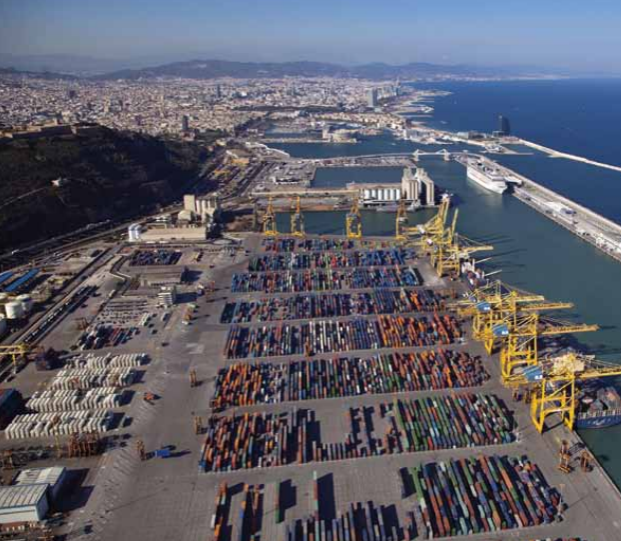Barcelona: a port of reference for international logistics
Until recently, Spanish fruit companies saw Europe as the main market focus, but the economic crisis and blockade on deliveries to Russia and other factors have created a new scenario forcing many companies to reassess and diversify their markets.
In this vein, the Port of Barcelona facilitates external trade for companies in the region, as shown by its traffic. Until 2007, the main volume of fresh produce traffic via the Catalan port was in imports, above all from the Southern Hemisphere with citrus at the forefront.
Since then, its fruit traffic in exports has seen great growth, almost reaching the same level as imports. “Exports continue to grow and the Port of Barcelona facilitates this process,” said the head of promotion at the Port Community, Manuel Galán.
With nearly 100 regular lines connecting the Catalan capital directly to over 200 ports on the five continents, Barcelona is the top port in the country for international traffic.
“The quality of Spanish fruit is appreciated in areas such as the Middle East. This is why we have a high frequency of voyages available, whether direct or with stopovers, with a transit time of 12 to 14 days,” Galán said.
Furthermore, the close collaboration between the Port of Barcelona and the Italian shipping company Grimaldi is reflected in a wide range of short sea shipping services. An example of this is the increased connection between Barcelona and Porto Torres, which Galán said has made Mercabarna one of the main suppliers for Sardinia.
“Our aim is to position ourselves as the main distribution hub in southern Europe. To do so, in the sphere of fresh produce we have a strategic partner in Mercabarna, the main wholesale market in Catalonia, which enables us to provide a competitive service tailored to our clients,” he said.
Common interests and aims have led to this solid alliance between Mercabarna and the Port of Barcelona, which in turn has led them to participate together in the major fairs in the sector such as Fruit Attraction in Madrid and Fruit Logisitica in Berlin, where they exhibit in a trio along with the Italian shipping company Grimaldi.
In addition, the Port of Barcelona is working in collaboration with Mercabarna, Barcelona City Council and the company Ecoenergies on a project using the residual cooling generated by the regasification of Liquefied Natural Gas (LNG) to provide industrial cooling for Mercabarna’s refrigeration installations.
“This centralised cold network will enable CO2 emissions to be reduced as well as savings in energy and costs,” Galán said. GNL’s commitment to the Port of Barcelona also includes supplying this fuel to ships, trucks and port machinery in order to offer a competitive, sustainable alternative to their clients, as well as a more environmentally friendly energy solution.
This article was originally published on page 37 of edition 145 (Sep-Oct 2016) of Eurofresh Distribution magazine. Read more from that issue online here: www.eurofresh-distribution.com/magazine/145-2016-sepoct



